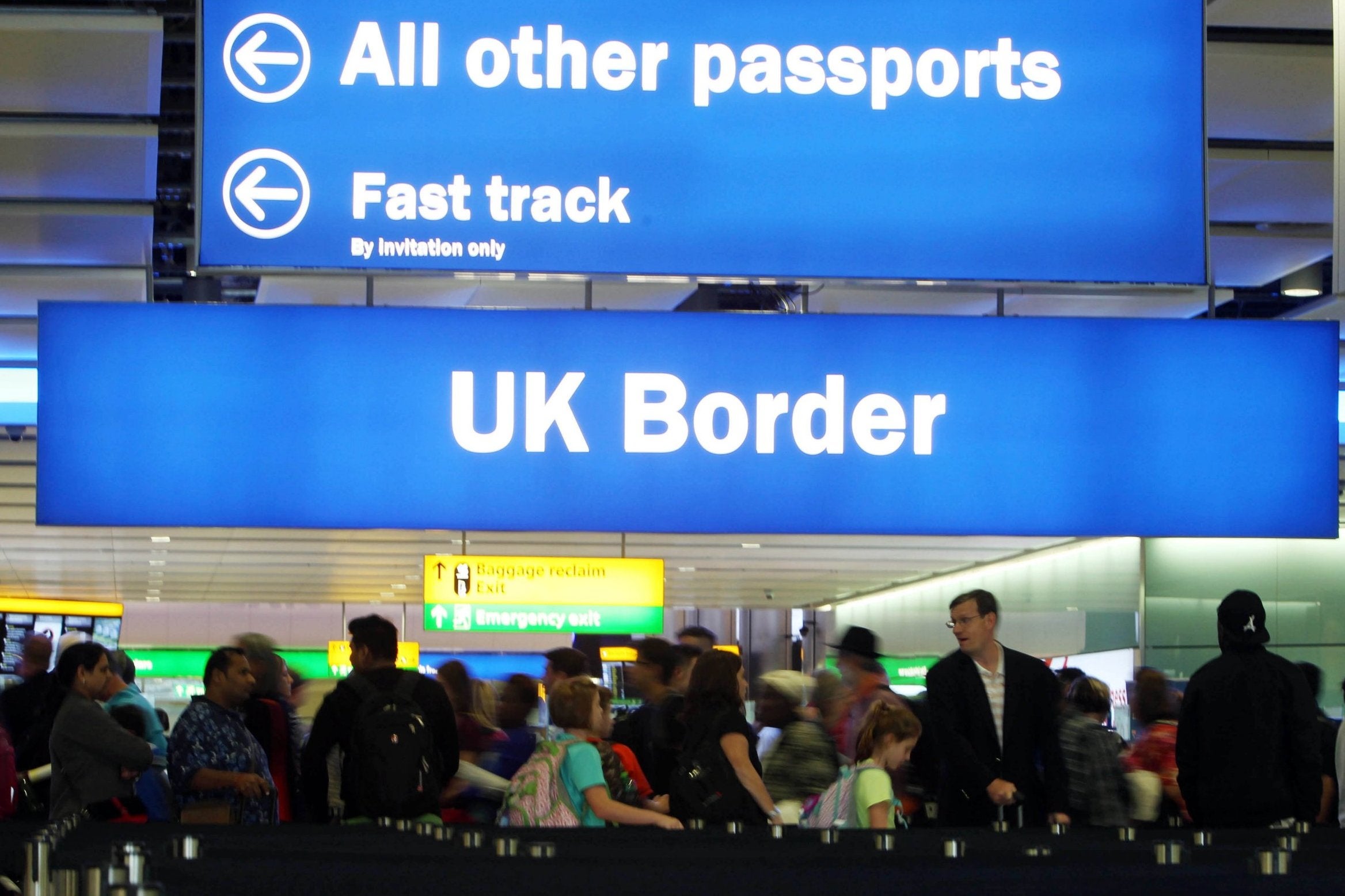Government systematically overestimated number of immigrants from outside EU, report reveals
Number of people moving to Britain from outside Europe each year is 25,000 lower than previously stated in ‘over-dramatised’ estimates

The government has been systematically overestimating the number of immigrants coming to the UK from outside the EU, the Office for National Statistics (ONS) has said.
Experts said small changes in migration had been “over-dramatised” after the ONS admitted estimates of non-EU net migration have been too high.
In a new report, the ONS said that at the same time, official estimates of EU net migration to the UK from the mid-2000s until 2016 were too low, primarily due to underestimates in the emigration of non-EU international students.
Adjusted figures published today for non-EU net migration are 13 per cent (or 25,000) lower than previous estimates in the year ending March 2016, and 8 per cent or 18,000 lower for 2018.
Meanwhile, an initial set of adjusted figures have increased the official estimate of EU net migration by 16 per cent – or 29,000 – for the year ending March 2016, meaning an increase in the estimate of EU migration from 178,000 to 207,000 over that period.
These two corrections broadly cancel each other out. As a result, the ONS’s assessment of overall net migration up to the year ending March 2016 is largely unchanged, increasing by 4,000 or 1 per cent in that period.
Over the past two years, the ONS has been working to identify why the International Passenger Survey, a high-profile dataset that was widely used to assess the government’s attempts to meet its “tens of thousands” net migration target, was inconsistent with other data sources.
Madeleine Sumption, director of the Migration Observatory at the University of Oxford, said: “We have been pointing out for a while that something wasn’t quite right in the net migration statistics, and that the comparison of EU vs non-EU net migration did not seem plausible.
“This matters because for the past nine years the UK policy debate has been fixated on a single data source, which couldn’t bear the load that it was forced to carry.
“Whether the question is how to meet the net migration target or what to do about international students, the truth is that the data were simply not robust enough to be picked apart in such detail.
“The quarterly drumbeat of migration statistics that has become a feature of the UK migration debate arguably just over-dramatised small changes in figures that were always quite uncertain.”
Iain Bell, the ONS’s deputy national statistician, has written to Ed Humpherson, director general for regulation at the UK Statistics Authority, to request the support of his office for the reclassification of the Migration Statistics Quarterly Report (MSQR) as experimental statistics. In response Ed Humpherson has confirmed that the authority has concluded that the MSQR should not be designated national statistics.
Mr Bell said: “We have confidence in our overall assessment of migration trends, but recognise that development will be ongoing as we look to more data sources as set out in our work plan.
“We have asked the Office for Statistics Regulation to support our reclassification of international migration statistics to experimental statistics during this period of development and innovation to meet the public good.
“We expect our current work programme to be complete by this time next year when we will seek redesignation to national statistics status.”
Subscribe to Independent Premium to bookmark this article
Want to bookmark your favourite articles and stories to read or reference later? Start your Independent Premium subscription today.




Join our commenting forum
Join thought-provoking conversations, follow other Independent readers and see their replies
Comments